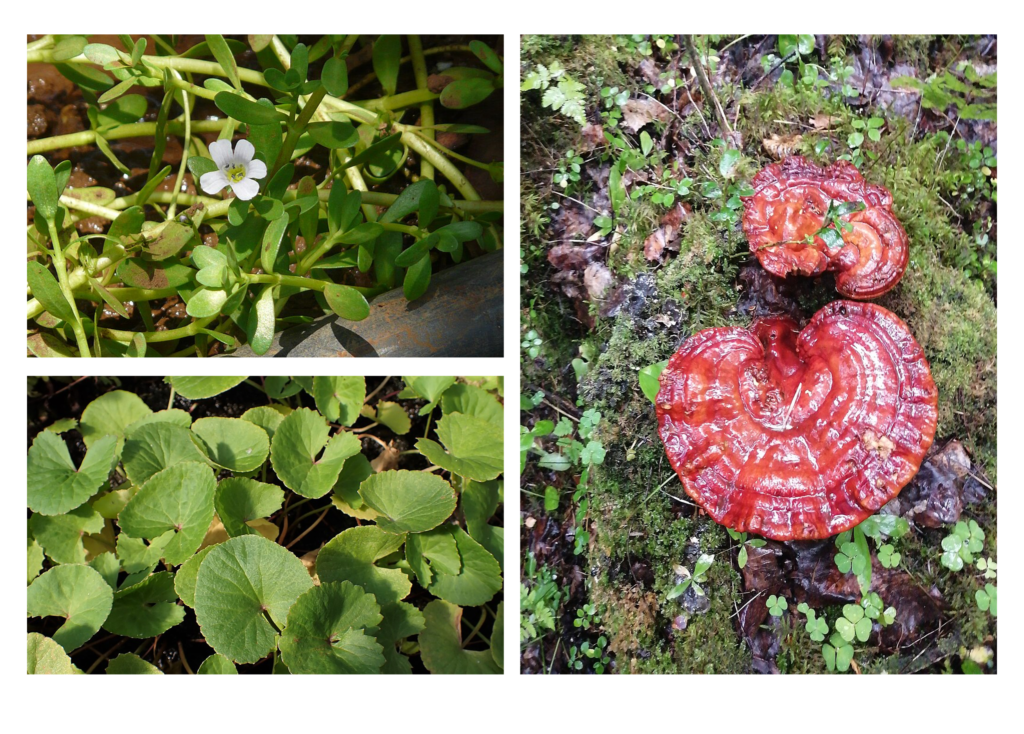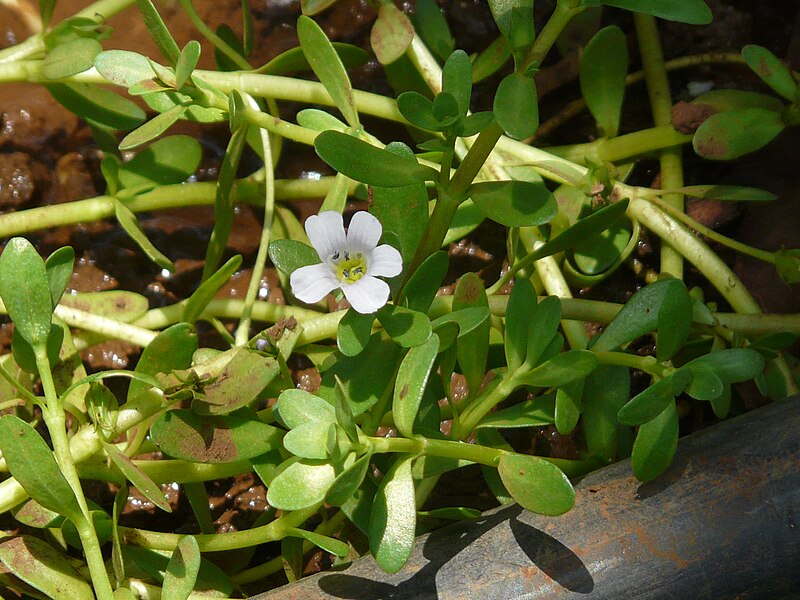Write-up of the following paper by Dr Viv:
Wightman E et al (2023). Chronic supplementation of a multi-ingredient herbal supplement increases speed of cognitive task performance alongside changes in the urinary metabolism of dopamine and the gut microbiome in cognitively intact older adults experiencing subjective memory decline: a randomized, placebo controlled, parallel groups investigation. Front Nutr, doi: 10.3389/fnut.2023.1257516.
Available at: https://www.ncbi.nlm.nih.gov/pmc/articles/PMC10598389/
Visit our Freebies page to download a PDF of this article.
Summary:
- The research was carried out by Dr Emma Wrightman at Northumbria University.
- The study shows the potential benefits of a herbal blend given for 90 days in improving cognitive processing in older adults.
- The speed of processing was improved, but other aspects such as memory or recall were not altered.
- There were changes in the microbiota associated with the herbal blend, which suggests the gut and brain may be working together.
- More research is needed to understand the role of individual herbs, and the potential gut-brain associations.

Brahmi (top left), Gotu Kola (bottom left), Reishi (right). Pictures from Wikimedia Commons.
What was the paper about?
This paper is a randomised, placebo-controlled trial that tests the effects of a blended organic herbal supplement (Brahmi, Gotu Kola and Turmeric as majority ingredients along with others including Reishi) in older adults with subjective memory decline.
Memory decline affects our wellbeing as we age and is part of a normal aging process. If it progresses more seriously it can lead to a diagnosis of Mild Cognitive Impairment (MCI), which can be linked to dementia (References 1, 2, 3). This paper focuses on memory decline in adults before the MCI or dementia stage.
Herbal supplements offer consumers the choice to use something potentially organic and natural rather than drug medication. Many of these herbs are traditionally used to help with cognition – Brahmi (Bacopa monnieri) is connected to the Hindu name Brahmins who were wise priests and teachers. There is good scientific evidence on the use of Brahmi to enhance our thinking or soothe the nervous system. Gotu Kola (Centella asiatica) is like Brahmi, an Ayurvedic herb, and there is less research on it but it has been looked at to help reduce anxiety. Reishi (Ganoderma lucidum) is associated with longevity in Traditional Chinese Medicine and is known as Ling Zhi. It is a beautiful bracket mushroom found on decaying trees across Europe and Asia. More details of the herbs used can be found in the research paper.
Methods followed
This was a study with measurements taken in the university lab as well as in the home. The protocol was submitted to ClinTrials.Gov (4). Cognitive measurements were taken using the Compass Cognitive Task Battery of tests that occurred during lab visits (measures included speed and accuracy of attention, quality and speed or memory, overall accuracy and overall speed, and others). The Cognimapp tool is a mobile app used for daily home assessment. (Measures include mood, anxiety, reaction times, working memory). Alongside the cognition tests, food diaries were kept. Stool microbiota composition was analysed using 16s RNA, and urinary metabolomic biomarkers were tested using liquid chromatography and mass spectrometry.
Design and supplement tested
The study was randomised, double-blinded, with a supplemented group (n=66) and placebo-controlled group (n=62). It included male and female participants with the average age of 64 years. Participants attended the lab on Day 1 (given supplements and ‘acute’ tests taken at that time), and on Day 90 following supplementation (‘chronic’ tests).
The herbal blend (with more than 50% by weight Brahmi, Gotu kola leaf and Turmeric, also comprised Reishi full spectrum, Rosemary, Cardamom, Holy Basil, and Seagreens). The supplement is no longer commercially available and was produced by Pukka Herbs Ltd up to 2023.
Results
For cognition,
- Positive improvement on speed of cognitive task performance measured in three separate tests both acute and chronic.
- Improvement in a rapid visual information processing task.
- No change to other cognitive tests for memory, recall etc.
For the microbiota, a reduction in numbers of 3 gut bacterial species Anaerostipes spp., Sutterella and Blautiaand greater alpha bacterial diversity (Shannon Index representing diversity of species in a sample) were observed. There was no change to beta diversity (evenness of composition – no one species dominates). There were reported lower levels of constipation on the supplement. For the metabolomics, urinary tyrosine was increased which suggests a role for dopamine in the neurological changes.
Relevance of the findings
For industry. There are many food supplements on the market containing Turmeric, Green tea, Brahmi, Reishi, Gotu Kola and Rosemary that aim to support cognition. These herbs contain polysaccharides, phenolics, terpenes and other plant compounds known to influence cognition (as explained in more detail in the paper). In the EU/UK, many products display a cognition health claim through the inclusion of iodine (“contribution to normal cognitive or neurological function”). There is an EU non-authorised (on-hold) botanical claim for cognition and memory for Brahmi – “May help to improve concentration and memory” (5).
Medical considerations. The herbs were taken for 90 days and outcomes over a longer time frame would be useful. In a medical population it would be important to consider potential herb-drug interactions particularly as we take more drugs as we get older (6). A quick look at ESCOP.com and EU Botanical Safety databases shows no known risk associated with the key herbs.
For future research. More good quality clinical studies are needed to understand the potential benefits of individual botanical species or herbal blends. Studies need to be high quality randomised, double-blind studies, with protocols registered, and full clarity on the botanical species used. These should be standardised where possible so that the results of similar trials can be compared. In this study, understanding the total polyphenol composition would have been interesting to infer more about the mechanisms which could include a prebiotic effect. The study included in-home testing and wellbeing reporting, offering a ‘pragmatic’ view which is useful for when considering integrative medicine approaches, as they provide more context and patient-centred information.
Future studies should absolutely combine cognition and microbiota analysis, as it is easily enough done, and changes in the microbiota may be implicated in impaired cognitive function (7). More research is needed to understand the significance of bacterial diversity and the abundance of key species in these potential gut-brain interactions.
Other points
Research was carried out at the Brain, Performance and Nutrition Research Centre, Northumbria University, Newcastle-upon-Tyne, NE1 8ST, UK. The work was sponsored by Pukka Herbs Ltd (Viv Rolfe was the industry lead and was not involved in running the project other than contributing to the herbal sections of the manuscript). The trial ran across the COVID-19 pandemic and more people were randomised to the supplement pre-covid than afterwards. Nutrition and lifestyle diaries did not record any major differences but there may have been other influences on the outcomes of the study.
Visit our Freebies page to download a PDF of this article.
Reading list
1 MacMillan (2022). https://www.yalemedicine.org/news/mild-cognitive-impairment
2 Weill Institute (2023). https://memory.ucsf.edu/symptoms/healthy-aging
3 Alzheimer’s Research UK (2023). https://www.alzheimersresearchuk.org/dementia-information/types-of-dementia/mild-cognitive-impairment/#:~:text=Mild%20cognitive%20impairment%20or%20MCI,development%20of%20diseases%20like%20Alzheimer’s.
4 Wrightman (2022).
https://clinicaltrials.gov/study/NCT05504668?cond=Cognition&intr=turmeric&rank=1.
5 UK Gov (2023). https://www.gov.uk/government/publications/on-hold-health-claims-on-foods
6 Age UK (2019). https://www.ageuk.org.uk/latest-press/articles/2019/august/age-uk-calls-for-a-more-considered-approach-to-prescribing-medicines-for-older-people/
7 Fan et al (2023). https://www.frontiersin.org/articles/10.3389/fnagi.2023.1162057/full#:~:text=Twelve%20genera%20of%20gut%20microbiota,were%20linked%20to%20better%20performance
Other interesting papers on the subject
Tsai et al (2021). Systematic review of the effects of curcumin on cognition in different patient populations. Available: https://pubmed.ncbi.nlm.nih.gov/34959636/
Wang et al (2018). No improvement in neuropsychiatric tests in a small group of Alzheimer’s patients following Reishi supplement. Available: https://pubmed.ncbi.nlm.nih.gov/29742702/
Baba et al (2021). L-theanine (extracted from green tea) improved attention and other cognitive functions in an older cohort of men and women. Available: https://pubmed.ncbi.nlm.nih.gov/33751906/
McPhee et al (2021). Brahmi extract improved some cognition tasks but an interesting study that used neuroimaging did not support the cognition changes in this small group of older health adults. https://pubmed.ncbi.nlm.nih.gov/33692683/
Nakase et al (2023). An interesting study protocol looking at Ginkgo biloba, turmeric and sesame on cognitive function in health adults. Available: https://pubmed.ncbi.nlm.nih.gov/36921003/
Read more about the herbs used in the study on Herbal Reality (HerbalReality.com).

